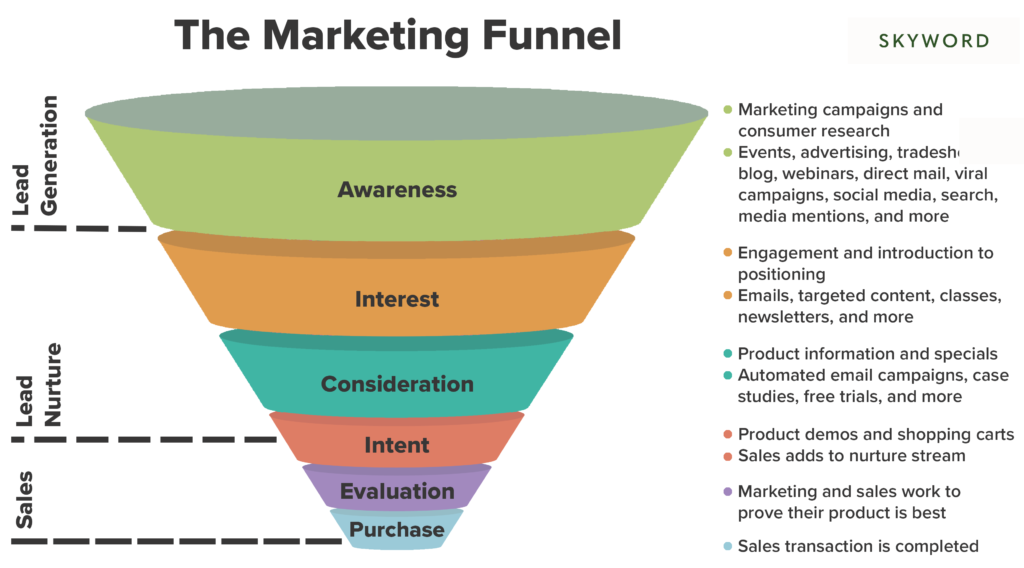When it comes to marketing, there’s often confusion between copywriting and content writing. People think they’re the same thing, but they’re not. The differences are critical to understand, especially if you’re building a business or a personal brand.
Copywriting focuses on driving action. Think ad copy, product descriptions, and sales emails—every word is chosen to push the reader toward a decision, whether it’s buying, signing up, or clicking a link.
Content writing, on the other hand, is all about engagement. Blog posts, articles, and social media content are meant to educate, inform, and provide value over the long term. Content writing is designed to keep people on your site, building trust over time.
Mastering the difference between copywriting and content writing is crucial for your marketing strategy because they serve different roles. Both are important, but knowing when to use each will help you engage your audience and drive conversions more effectively.
So, What is Copywriting?
Copywriting is writing that’s designed to get people to take action. Whether it’s clicking a button, signing up for a service, or purchasing a product, the goal is clear: drive conversions. You’ll see copywriting in ads, sales emails, landing pages, and product descriptions—basically any place where a business needs to persuade someone to take a specific action.
The key here is persuasion. Every word matters. You’re using psychological triggers, benefits over features, and a strong call to action to push people toward a decision. Copywriting is often short, punchy, and impactful, designed to hit hard in as few words as possible.
According to a study by HubSpot, high-converting landing pages typically have fewer than 500 words. It’s about delivering the right message at the right time. If you’re trying to sell something or get people to act immediately, copywriting is your go-to tool.
The best copywriters know their audience inside and out. They write directly to them, using language that resonates, offers that appeal, and benefits that speak to the customer’s desires or pain points. It’s less about informing and more about convincing.
You can watch my video on the copywriting research process if it interests you.
What is Content Writing?
Content writing is focused on delivering value-driven, long-form content that educates, informs, or entertains. Think blog posts, articles, guides, white papers—anything meant to provide readers with deeper insights, often over time, to build trust. The primary goal is not immediate action like copywriting but to engage and keep people coming back.
Content writing is about building relationships with your audience. You’re offering solutions, sharing knowledge, and providing value, which ultimately helps with SEO and improving brand authority.
This type of content typically lives at what we call the top of the funnel.

It’s an essential part of inbound marketing because it helps drive organic traffic through search engines, as you target specific keywords your audience is already searching for. All of which brings people down the funnel and closer to taking action.
Successful content writers master the art of storytelling, balancing research with engaging narratives that keep readers on the page. In many cases, the content has to be SEO-optimized to ensure it ranks well in search engines, making technical knowledge just as important as creative writing skills.
Differences Between Copywriting and Content Writing
Copywriting and content writing are often confused, but their goals and styles are different. Copywriting is about immediate action—getting someone to click, buy, or sign up.
It’s short, persuasive, and heavily focused on conversion. You’ll find copywriting in ad campaigns, sales pages, and product descriptions where every word counts toward driving sales.
Content writing, on the other hand, is more about long-term engagement. It’s designed to educate, inform, or entertain readers. Think blog posts, guides, or case studies. Content writing builds relationships over time by offering value and SEO-friendly content to attract organic traffic.
The biggest difference? Copywriting is about immediate action, while content writing focuses on building trust and keeping people engaged with your brand. Both are crucial, but they serve different roles in a marketing strategy.
How Are Copy and Content Similar?
Copywriting and content writing have more in common than you might think. Both rely heavily on understanding the target audience. Whether you’re writing ad copy or a blog post, the goal is to resonate with readers. You need to know what motivates them, their pain points, and how to offer value.
Both copywriting and content writing also require strong research. Even a short ad copy needs to be informed by a deep understanding of the product, market, and customer psychology. Content writing, especially for SEO, relies on thorough research to back up the information you provide, ensuring your content delivers real value.
Another key similarity is the ability to write clearly and concisely. Both forms of writing require you to cut through the noise and get to the point. It’s about making sure every word counts, whether you’re convincing someone to buy or educating them on a topic.
Finally, both require the writer to align with the brand voice. Whether you’re persuading or informing, the tone has to match the brand’s identity and speak directly to the intended audience.
Day in The Life of a Copywriter vs Content Writer
A day in the life of a copywriter is fast-paced and results-driven. It starts with research—understanding the product, market trends, and, most importantly, the audience.
Copywriters spend a chunk of their time brainstorming and writing headlines, ad copy, emails, and landing page content. They’re constantly testing what works and refining their messaging to drive conversions.
They also collaborate with marketing teams, designers, and clients, ensuring the copy aligns with the overall strategy. Analytics play a big role; copywriters track performance metrics like click-through rates and optimize based on what’s converting.
A day in the life of a content writer is all about balancing research, writing, and optimization. The morning starts with deep research, gathering facts, stats, and relevant details that will form the foundation of a blog post or article. The focus is on delivering long-form, value-packed content, often SEO-driven, to engage and educate readers.
Once the research is done, the writing begins—crafting narratives that align with the target audience and SEO goals. Content writers typically juggle multiple drafts, revising to improve readability and ensure keyword integration. Collaboration with editors and SEO specialists is common, ensuring the content is well-optimized before publication.
Skills Required to Become a Copywriter
Copywriting demands a unique set of skills. First and foremost, you need to understand persuasion. You’re not just writing words; you’re convincing people to take action. That means you need a deep understanding of consumer psychology—what makes people tick, why they buy, and how to trigger emotional responses with words.
Clarity and conciseness are non-negotiable. Every word must serve a purpose. You can’t afford fluff in copywriting. Being able to deliver a clear, persuasive message in as few words as possible is critical.

Adaptability is also key. A copywriter needs to shift their tone and style depending on the audience, platform, and medium. Writing for a landing page requires a different skill set than crafting an email campaign.
Skills Required to Become a Content Writer
Content writing requires a solid mix of research skills and storytelling. You need to dig deep into a subject, pull out relevant data, and then turn that into content that’s both engaging and informative. Whether it’s a blog post or a guide, your content should provide value and keep readers hooked.
Another essential skill is SEO knowledge. Content writers must know how to optimize their writing for search engines without stuffing keywords or sounding robotic. You also need strong editing skills. Long-form content has to flow well, be easy to read, and maintain clarity.
The ability to write with a clear voice is crucial. While copywriters focus on short-form, conversion-driven writing, content writers focus on long-form content that needs to inform or entertain while also aligning with the brand’s tone. This includes writing for different channels, from blogs to social media to newsletters.
Final Thoughts on Copywriting vs Content Writing
Choosing between copywriting and content writing depends entirely on your goals. If you’re looking for immediate results, like driving conversions, generating leads, or boosting sales, then copywriting is your go-to. It’s all about persuasive, concise language that pushes people to take action.
On the other hand, if you’re focused on long-term engagement, building brand authority, and educating your audience, content writing is where you’ll want to invest.
Schedule a free consultation to learn more about my marketing services that will help your business drive more revenue.














